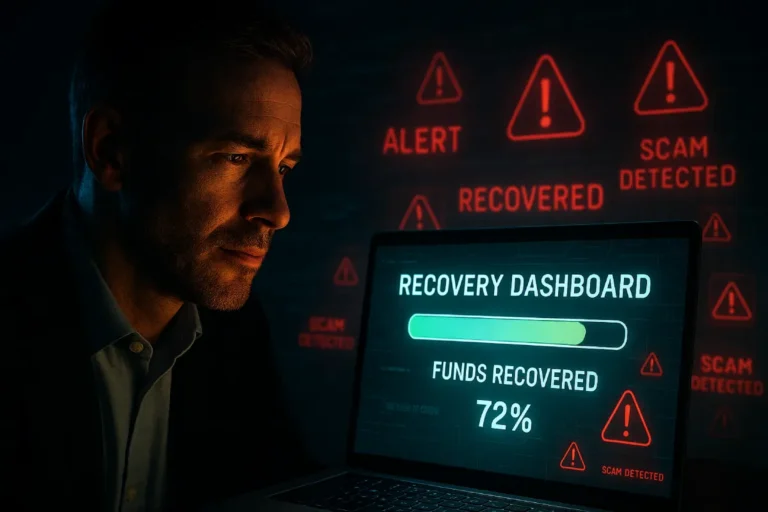The promise of early-stage cryptocurrency investing remains straightforward. Identify the next breakthrough protocol before institutions arrive, deploy modest capital, and potentially generate outsized returns. Initial coin offerings and token presales represent the primary vehicle for retail investors to access these opportunities alongside venture funds and sophisticated participants.
The structural reality is less appealing. The same characteristics that enable legitimate fundraising also create an optimal environment for sophisticated fraud. Billions have been extracted through fake ICOs and exit scams that exploit both blockchains’ technical complexity and investors’ fear of missing out. I’ll examine the anatomy of crypto fundraising scams, review specific cases including major schemes that targeted Hong Kong investors, and provide a practical due diligence framework alongside actionable steps for victims seeking recovery.
What is a Crypto ICO Scam?
- The Deceptive Whitepaper: Instead of providing technical substance, scam projects churn out glossy documents filled with buzzwords. They sound impressive, but they don’t explain how the technology works.
- The Phantom Team: Fraudsters create fake founder profiles with stock photos or fabricated résumés. A quick background check reveals no verifiable history in blockchain, finance, or technology.
- The Hype Machine: Scams rely on aggressive social media marketing, paid influencer endorsements, and Telegram groups full of “investors” boasting about massive profits — many of whom are bots.
- The Exit Scam (“Rug Pull”): Once enough money is raised, the website shuts down, social channels go silent, and the team vanishes. Investors are left with nothing but tokens that can’t be sold.
Examples of Crypto ICO Scams
- Pincoin & iFan
- The Promise: Vietnamese company Modern Tech launched two ICOs — Pincoin and iFan — promising guaranteed returns of up to 48% per month.
- The Reality: Investors poured in roughly USD 660 million before the founders disappeared.
- Lesson: “Guaranteed returns” are the clearest red flag in crypto.
- The JPEX Scandal
- The Promise: A crypto exchange offering extremely high yields on deposits, promoted heavily in Hong Kong by celebrities and OTC shops. JPEX also pushed its own token, JPC, as a “next big thing”.
- The Reality: JPEX was an unlicensed platform. When the SFC issued warnings, JPEX hiked withdrawal fees to astronomical levels, effectively trapping user funds.
- Lesson: Always verify licenses. If yields are far beyond sustainable market rates, you’re staring at a scam.
- Filecoin Miner Scam
- The Promise: A company claimed to sell Filecoin mining contracts and hardware that would generate huge profits, leveraging the legitimacy of the real Filecoin project.
- The Reality: The firm had no link to Filecoin. Investors were sold overpriced, worthless contracts.
- Lesson: If a project claims affiliation with a legitimate protocol, confirm it directly through the official project’s website or channels.
Due Diligence Checklist for Crypto ICOs
- Anonymous or Unverifiable Team: If the founders have no credible history, be cautious.
- Vague or Plagiarized Whitepaper: Poorly written or copied documents signal fraud.
- Unrealistic Promises of Returns: As seen with BitConnect and JPEX, high guaranteed yields are a dead giveaway.
- Intense Pressure and Unlicensed Promotion: Paid influencers or OTC shops without licenses should raise alarms.
- No Publicly Available Code or MVP: If there’s no working product, it’s all marketing.
- Impersonating Legitimate Projects: Verify all claimed partnerships.
- Unaudited Smart Contracts: Never trust unaudited code with your money.
What to Do if You’ve Been Victimized by a Crypto ICO
- Stop All Further Investment: Don’t send additional funds, even if scammers claim you need to pay a fee or tax to recover your money.
- Preserve All Evidence: Keep transaction IDs, wallet addresses, emails, chat logs, and screenshots. This evidence is critical.
- Report to the Authorities: In Hong Kong, file reports with the Police and the Securities and Futures Commission (SFC). Regulatory action strengthens recovery efforts.
- Seek Professional On-Chain Investigation: Blockchain transactions are permanent. With expert tools, stolen funds can often be traced, even across complex laundering routes.



